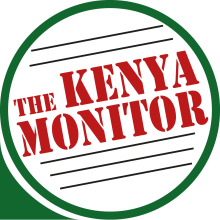Did you as a journalist face any major challenges during the covid-19 pandemic?
We clearly had little time to review and research about the pandemic before it finally hit us. Covid-19 reporting was nothing less of an uphill task.
Challenges faced by journalists in Kenya during the covid-19 period.
Besides having a health crisis, journalists were also faced with a much bigger crisis than the rest of us, I imagine covering news on a topic I less understand but still have to pursue it for the sake of the masses? that must be challenging.
There was basically an information crisis in the wake of the pandemic. The journalists and media practitioners were tasked with providing crucial information on the status of the virus in their communities, how health services are responding, the changes in policy and community norms, government restrictions and still holding the government accountable with just a little or no experience on health reporting.
Through the pandemic period, consumers shifted to watching covid-19 news, which was a great shift in primetime shows and news items that forced journalists to focus more on health reporting which wasn’t as big as before.
there was also a lack of expertise on covering the virus in different languages including vernacular languages.
Alongside challenges in news reporting, journalists in Kenya were also brutally attacked while on duty in Mombasa. A case in point for NTV cameraman Peter Wainaina who was brutally attacked after he filmed police brutality to commuters who had violated curfew hours.
Narrating the accounts of the incident he says, “I was doing my work and it caught me by surprise the brutality this policeman netted on me. I did not provoke him and it was uncalled for.”
Another similar incident happened in the Kiambu county government where security officers assaulted and Arrested journalist and activist Mokoya Aywah and confiscated his camera while going about his duty
There are many more such incidences that happened to journalists reporting on covid-19.
Another major major challenge that was faced by the journalist in the wake of covid-19 were the numerous pay cuts introduced by their media houses as they gauged the economic impact of the pandemic.
Some media houses sliced salaries for even up to 40 per cent yet still expected the same journalists to report to work and cover for the massive layoffs as a result of the pandemic disruptions.
Additionally, reporting on COVID-19 was a heavily gendered impact on media especially on how the stories weres covered. Three-quarters of the global healthcare workforce are women, yet for every mention of a well-known
female scientist, 19 male counterparts were mentioned in return. Women were treated as a lesser gender on matters of health.
A report by Media Support on covid-19 and the media notes that ” there was an alarming rate of hate speech against women journalists.
Similarly in Kenya, covid-19 reporting was faced by a myriad of myths and misconceptions and politics around the virus that hindered its reporting and has further slowed down the vaccine intake. Earlier in the days, there were myths about covid-19 claiming it doesn’t affect Africans which aided a carefree mentality on self-protection.
Elsewhere, In a massive sampling of nearly 200 million social media posts in 64 languages related to COVID-19, Italy’s Bruno Kessler Foundation found an average of 40 per cent were unreliable and reported the wrong information to the public.
This indicates, covid-19 reporting was challenging globally and not only in Kenya.


